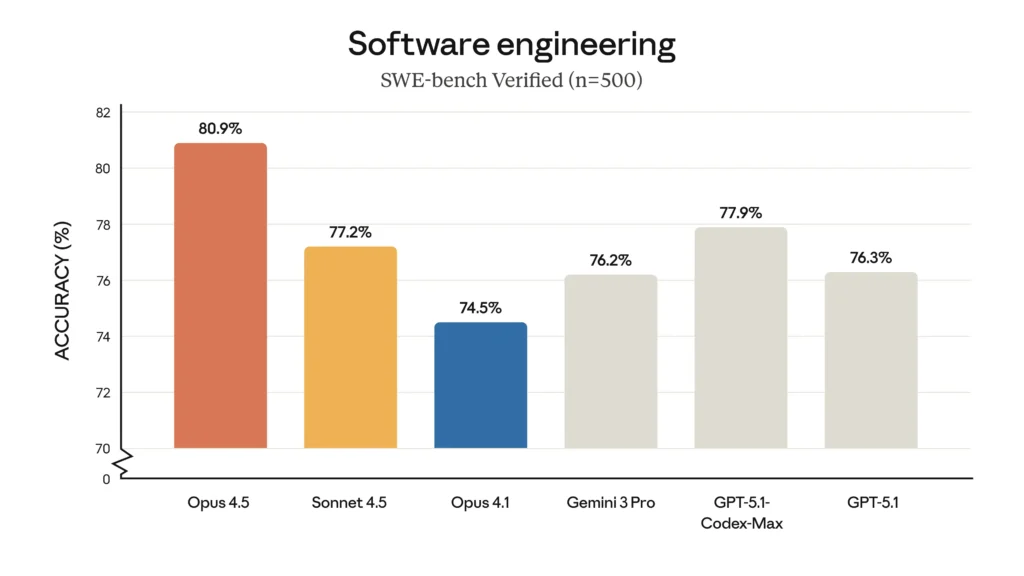Anthropic introduced a new version of its AI model Claude Opus 4.5, which is now available through the company’s own applications, API, and all major cloud services. According to Anthropic, Claude Opus 4.5 performs better in programming tasks, agent usage, and computer work compared to the previous version and competitors, including Gemini 3. The model shows increased efficiency in deep research, presentation work, and spreadsheet filling.

The update includes new tools for “Claude Code” and consumer applications of Claude, which allow working with long-term agents and using Claude in Excel, Chrome, and on the desktop. This opens up more possibilities for automating users’ everyday tasks and expands the ways AI can be applied in different environments.
Anthropic has focused on security issues, particularly protection against malicious requests and “prompt injection” attacks. According to internal and external tests, Opus 4.5 refused to execute all prohibited requests related to malicious code during one of the verification stages. However, in “Claude Code” trials, the model refused only about 78% of attempts to create malicious or unwanted software.
In “computer use” function tests, Claude Opus 4.5 refused to execute slightly more than 88% of requests related to data collection, surveillance, or distribution of harmful content. Anthropic published the results of these checks in the model’s documentation, acknowledging that the model is not fully protected against complex attacks but shows better performance compared to its predecessors.



